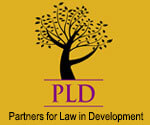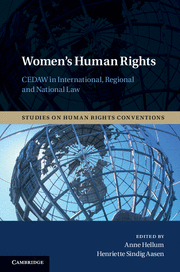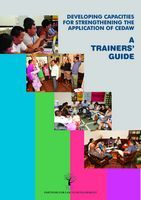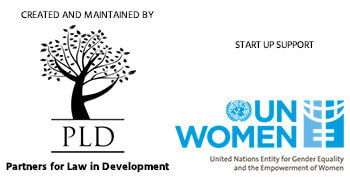This section explains the mechanisms provided under the CEDAW Committee to monitor the implementation of the Convention by the state parties. The treaty body constituted under the Convention is referred to as the CEDAW Committee. This page provides an overview of its roles and functions. The page also contains links to key sections of other websites.
What is the CEDAW Committee?
The Committee on the Elimination of Discrimination against Women (CEDAW) comprises 23 experts who monitor the implementation of the Convention through a review of the reports submitted by the state parties. Article 17 of CEDAW provides for the establishment of a Committee on the Elimination of Discrimination against Women to consider the progress made in the implementation of the Convention by each state party.
Who can be a member of the CEDAW Committee?
The 23 experts who comprise the CEDAW Committee are individuals of high moral standing and competence in the field covered by the Convention. Article 17 states that the members of the Committee shall be elected for a term of four years. A total of 104 experts have served as members of the Committee since 1982. The officers of the Committee consist of a Chairperson, three Vice-Chairpersons, and a Rapporteur. Office-bearers serve for two-year terms and are eligible for re-election “provided that the principle of rotation is upheld”.
Click here to see the list of present CEDAW Committee members and their bios.
Click here to see officers of the CEDAW Committee (1982-2008).
What is the election process of the CEDAW Committee?
The Committee members or experts are elected by secret ballot by the state parties. Although the experts shall be elected by the state parties from among their nationals, they serve in their personal capacity. Elections of the members of the Committee shall be held at a meeting of the state parties convened by the Secretary-General at the United Nations headquarters. At that meeting, for which two-thirds of the state parties shall constitute a quorum, the persons elected to the Committee shall be those nominees who obtain the largest number of votes and an absolute majority of the votes of the representatives of the state parties present and voting.
The members of the Committee shall be elected for a term of four years. However, the terms of nine of the members elected at the first election shall expire at the end of two years. Immediately after the first election, the names of these nine members shall be chosen through lot by the Chairman of the Committee.
When and how are CEDAW Sessions conducted?
The Committee usually invites eight state parties to present their reports at each three-week session. In making the selection, the Committee gives preference to reports that have been pending for the longest time, prioritizes the remaining initial reports, and considers achieving a balance of reports in terms of geographical and other factors.
Sessions of the Committee shall normally be held at the headquarters or at the other offices of the United Nations. Another venue for a session may be proposed by the Committee in consultation with the Secretary-General. A pre-sessional working group, consisting of no more than five member of the Committee, convened prior to each regular session formulates a list of issues and questions on substantive issues arising from the reports submitted by the state parties in accordance with Article 18 of the Convention.
For information on the current working methods of the CEDAW Committee, click here
For further information on the sessions and the reporting schedule, click here
What is the CEDAW Secretariat?
The Secretariat to the CEDAW Committee is the office of the United Nations High Commissioner for Human Rights (OHCHR), Geneva. All documents relating to CEDAW, to the Committee’s sessions and its working procedures, and to the mandate from 2008 onwards are available at the OHCHR website.
Prior to January 2008, the Division for the Advancement of Women (DAW), based in New York, served as the Secretariat to the CEDAW Committee.
What is the role of the CEDAW Committee?
The Committee is tasked with the review of the reports of the state parties submitted in accordance with Article 18 of the Convention. The Concluding Observations are issued by the CEDAW Committee upon the examination of the reports of the state parties and are specific to the state party being reviewed. The Committee also issues General Comments, which are interpretative comments on specific articles of the Convention.
The Optional Protocol to the Convention, which came into force in December 2000, empowers the Committee to consider communications submitted by individuals or groups alleging CEDAW violations in state parties to the Convention and the Optional Protocol. The Optional Protocol also empowers the Committee of its own accord to inquire into grave or systematic violations in those state parties where this procedure is applicable, in accordance with Articles 8 and 9 of the Optional Protocol.










